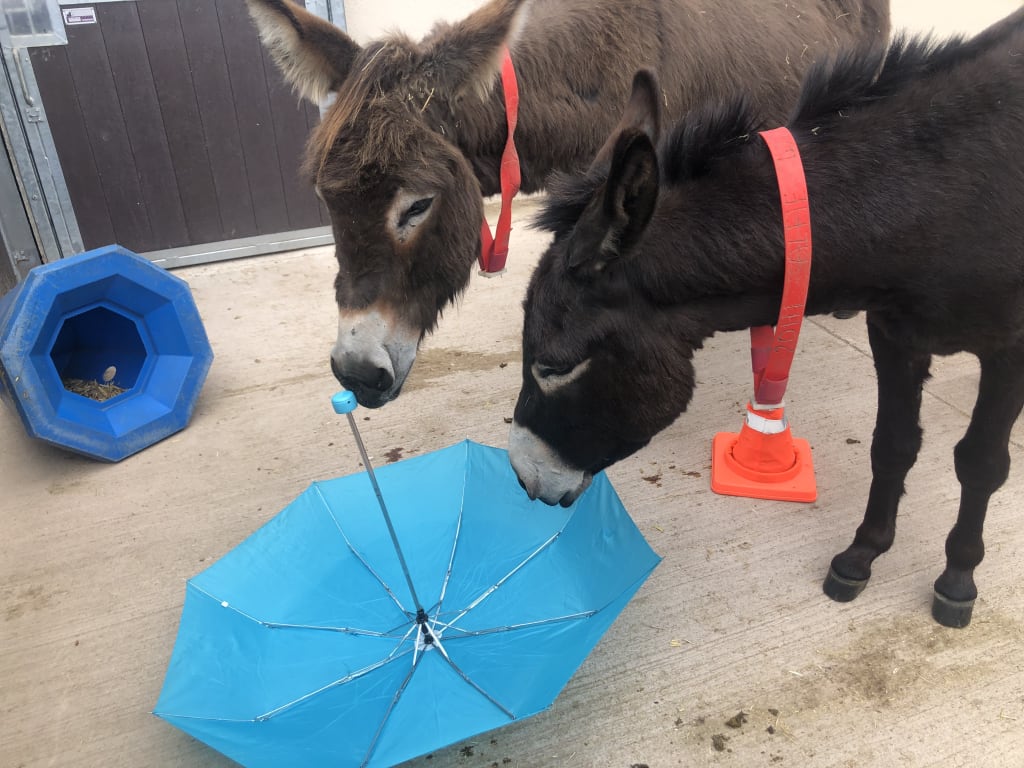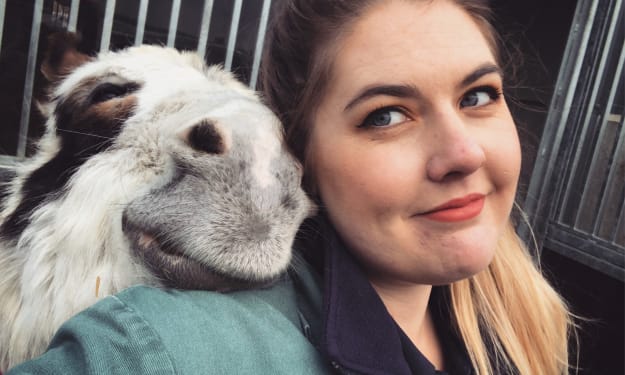Taking Care of Your Donkeys’ Mental Wellbeing
It’s just as important as physical health

Looking after your donkeys’ mental wellbeing is an important part of caring for them. It can also be a fun and creative endeavour, allowing you to form a stronger bond with your donkey. Just like people, donkeys can suffer from stress, which can have a negative impact upon both their physical and mental health. So, what can you do to improve your long-eared friends’ mental wellbeing?
Donkeys have evolved to live in sparse environments where they have to roam for miles every day and forage continuously for food. Here in the UK, donkeys have it easy by comparison. They have all the food they could ever want and don’t have to face any difficult challenges in obtaining it. However, this frees up a big portion of their day that would usually be spent foraging for food, leaving them bored and often overweight. We have to add this challenge back into our donkeys’ lives in order for them to feel mentally healthy and fulfilled.
We can do this by adding enrichment. By creating track systems within their living spaces, we can encourage them to walk further every day. We can increase foraging opportunities by presenting forage in more challenging ways and by providing them with different kinds of plants and branches to pick at. There are many toys on the market suitable for donkeys, but you can also get creative and make your own. You can even use herbs and spices to create scent trails!
By making our domestic environments as interesting as possible and engaging our donkeys’ thinking skills, we can help them to behave as naturally as possible. This will reduce stress and improve their overall wellbeing, as well as create opportunities for us to have fun and bond with our donkeys.
Our domestic donkeys also face additional challenges that their wild counterparts do not. For example, they must stand still and calmly accept veterinary and farriery treatment regularly. These routine treatments can make your donkey feel nervous or fearful, which they communicate by exhibiting fight/flight behaviours that have the potential to be unsafe. For some donkeys, simple day-to-day grooming, leading and foot handling can be challenging enough and they require extra help in order to cope with simply being a domestic donkey!
It is possible for us to reduce any stress experienced during routine by handling our animals daily and training them to calmly cope with what is required of them. By training our donkeys in small steps, using positive reinforcement, we can prepare our donkey to accept treatment calmly, which in turn will keep everyone involved with that donkey safe. Training your donkeys using positive methods in accordance with learning theory can be fun for both donkey and human, and it allows us to develop the trusting relationship that we want.
We can also address any behavioural problems that our donkeys may have in other areas of their lives. Behaviour problems are largely indicative of fear, pain or confusion. By investigating the cause of these problems, working to solve underlying issues and retraining our animals to overcome challenges that they face, we can ensure that our donkeys live stress-free lives with us. This helps us build a good relationship with our equines and it is an essential part of keeping them healthy, safe and happy.
If you want to learn more about taking care of your donkeys mental wellbeing, check out The Donkey Sanctuary’s online enrichment resource at this link: https://view.pagetiger.com/EnvironmentalEnrichmentforDonkeys/EnvironmentEnrichmentfordonkeys
If you need advice about training your donkey, mule or horse you can get in touch with me at [email protected] or The Donkey Sanctuary Behaviour Team at [email protected]






Comments
There are no comments for this story
Be the first to respond and start the conversation.